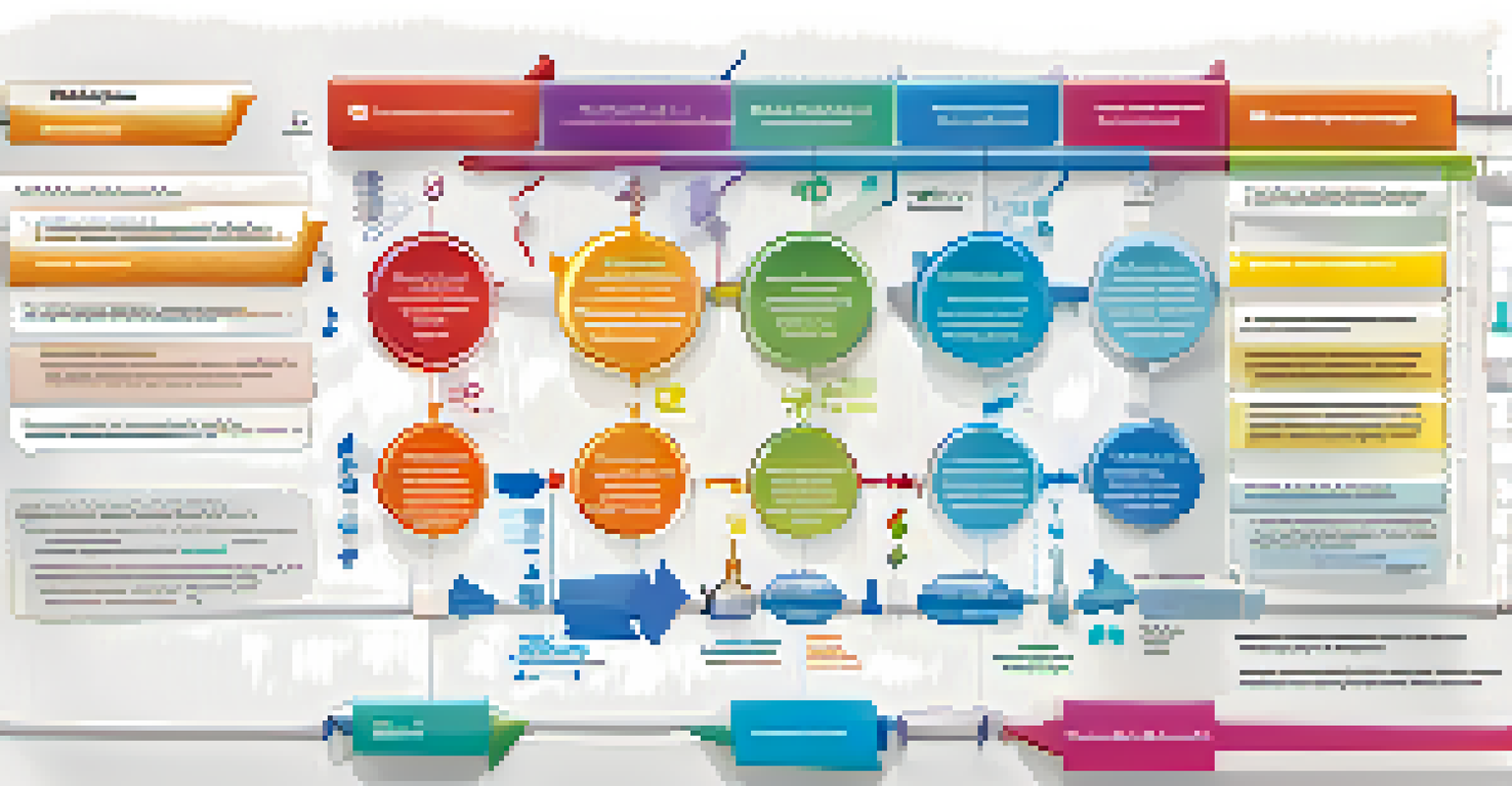The Role of Genetic Counselors in Patient Health Decisions

What is a Genetic Counselor and Their Role?
Genetic counselors are healthcare professionals trained to help patients understand genetic conditions and their implications. They bridge the gap between complex genetic information and patient comprehension, making it easier for individuals to make informed health decisions. By discussing family history and potential genetic risks, they guide patients through the often confusing landscape of genetics.
Genetic counseling is an essential part of patient care and helps patients understand their genetic information and make informed decisions about their health.
In essence, they serve as interpreters of genetic data, translating technical jargon into relatable concepts. This role is crucial, especially as genetic testing becomes more accessible and commonplace. Patients may face overwhelming choices, and genetic counselors help simplify these complexities into actionable insights.
Ultimately, a genetic counselor’s objective is to empower patients with knowledge. By offering emotional support and factual information, they ensure that individuals can navigate their health decisions with confidence.
The Importance of Genetic Testing in Decision Making
Genetic testing can reveal vital information about an individual’s predisposition to certain health conditions. This knowledge can significantly influence lifestyle choices, preventive measures, and treatment options. For instance, if a patient learns they carry a gene associated with breast cancer, they can take proactive steps to monitor their health more closely.

Moreover, genetic testing can also uncover valuable insights for family planning. Couples who are carriers of certain genetic disorders can make informed decisions about having children, exploring options such as in vitro fertilization (IVF) or prenatal testing. Here, genetic counseling provides clarity and reassurance amid the uncertainties.
Role of Genetic Counselors Explained
Genetic counselors help patients understand genetic conditions, guiding them through complex information to make informed health decisions.
In many cases, the results of genetic tests can guide treatment plans for existing health conditions. For example, understanding how a patient’s genetic makeup affects their response to medication can lead to more personalized and effective treatment strategies.
How Genetic Counselors Support Patients Emotionally
The journey through genetic testing and its implications can stir a whirlwind of emotions. Genetic counselors play a vital role in providing emotional support to patients who may feel overwhelmed, anxious, or even fearful about their results. Their empathetic approach helps patients process their feelings and concerns in a supportive environment.
The greatest gift we can give our patients is the ability to understand their genetic information and its implications for their health and their family's health.
Counselors often provide a safe space for patients to express their fears and uncertainties. By actively listening and validating these feelings, they foster a sense of understanding and connection. This emotional support can be as important as the scientific knowledge shared during the counseling sessions.
In addition to one-on-one support, genetic counselors may also direct patients to support groups or resources. These connections can help individuals realize they are not alone in their experiences, further strengthening their emotional resilience.
The Ethical Considerations in Genetic Counseling
Genetic counseling involves navigating a landscape rich with ethical considerations. Issues such as privacy, consent, and the potential for discrimination based on genetic information are at the forefront of discussions. Counselors are trained to handle these sensitive topics with care, ensuring that patients are fully informed about their rights.
For instance, patients must understand how their genetic information may be used and who has access to it. Genetic counselors advocate for their patients, helping them make informed decisions about sharing their genetic data. This is particularly crucial in safeguarding against discrimination in employment or insurance.
Impact of Genetic Testing
Genetic testing provides crucial insights that influence lifestyle choices, treatment options, and family planning decisions.
Ethics in genetic counseling also involves discussions about the potential psychological impact of genetic findings. Counselors must be prepared to help patients weigh the benefits and burdens of knowing their genetic risks, thus fostering a well-rounded decision-making process.
Collaboration with Healthcare Professionals
Genetic counselors do not operate in isolation; they work closely with a variety of healthcare professionals. This collaboration ensures that patients receive comprehensive care tailored to their unique needs. Whether it's a primary care physician, oncologist, or a reproductive specialist, genetic counselors play a pivotal role in the patient’s healthcare team.
By sharing insights gained from genetic testing, counselors help other healthcare providers make informed decisions about patient care. For example, a genetic counselor’s findings can influence cancer treatment protocols or preventive screening recommendations. This interdisciplinary approach enhances the overall quality of care.
Additionally, ongoing communication among healthcare professionals fosters a holistic view of the patient’s health. This collective effort helps ensure that all aspects of a patient’s health journey are considered, leading to better health outcomes.
The Future of Genetic Counseling
As advancements in genetics continue to unfold, the role of genetic counselors is expected to evolve. With the rise of personalized medicine, genetic counselors will increasingly be at the forefront of helping patients navigate their options. This shift will likely lead to a greater demand for their expertise in diverse areas such as pharmacogenomics and gene therapies.
The integration of technology, including telehealth, is also transforming how genetic counseling is delivered. Patients can now access counseling services from the comfort of their homes, making it easier for more individuals to seek guidance. This accessibility is crucial as genetic testing becomes more routine in healthcare.
Emotional Support in Counseling
Genetic counselors offer essential emotional support, helping patients navigate their feelings and uncertainties related to genetic testing results.
Looking ahead, genetic counselors will also play a key role in educating the public about genetics. As awareness grows, the demand for knowledgeable professionals who can guide individuals through complex genetic information will only increase, making their role even more vital.
Conclusion: Empowering Patients Through Knowledge
In conclusion, genetic counselors serve as essential allies in the healthcare journey. By providing critical information and emotional support, they empower patients to make informed health decisions. The combination of scientific knowledge and compassionate care creates a holistic approach that significantly benefits individuals facing genetic uncertainties.
As the field of genetics continues to expand, the importance of genetic counselors will only grow. They will be instrumental in translating complex genetic information into actionable insights that enhance patient care and well-being. This role is not just about genetics; it’s about fostering hope and understanding.

Ultimately, the work of genetic counselors contributes to a healthier society. By equipping patients with the tools they need to navigate their health choices, they play a vital role in shaping a future where individuals can take charge of their health with confidence.